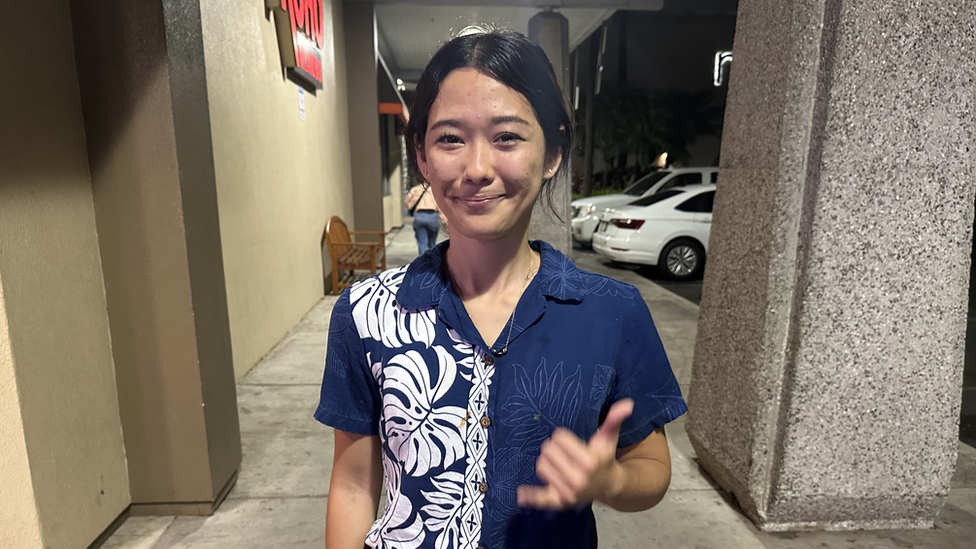Maui fires: 'We're self-reliant people - but where's the help?'
- Published
Watch: On board a boat bringing aid to fire-ravaged Maui
For those still living inside Hawaii's disaster zone on the western side of the island of Maui, there's one vital lifeline to the outside world: volunteer effort.
Standing at the wheel of the Ocean Spirit, a boat operated by marine conservation charity the Pacific Whale Foundation, is Captain Emily Johnston.
From day one, along with her crew of volunteers, she's been making multiple daily trips, taking supplies of food, water, fuel and clothing to the devastated town of Lahaina and the surrounding communities left without power or phone coverage.
"These islands they go through hurricanes, tsunamis, fires, everything and we're often having to be very self-reliant because we are isolated," Emily tells me.
"But that said, we're all wondering why there was no help sent from Oahu? Pearl Harbour is a twenty-minute flight away."
"Why are the limited resources of the police on this island left alone, where's the support for them? Why are we taking supplies on a boat instead of a helicopter?"
An hour into the journey, the devastation along the Maui shoreline comes into view. First the scorched grass and palm trees, then the charred remains of the Lahaina itself and the remnants of the shattered lives and livelihoods.
The boat beaches a few miles north of the town and a waiting team of local residents is there to meet it.
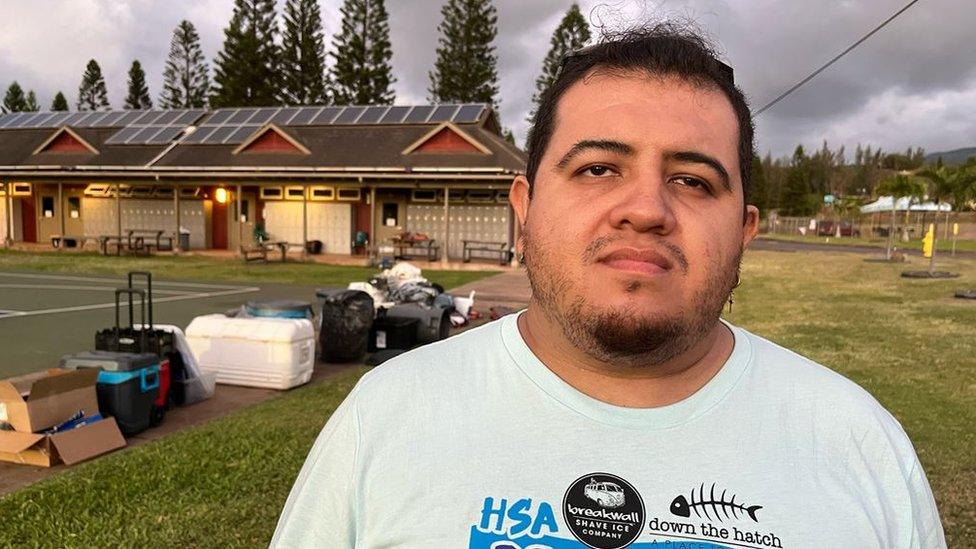
Maui resident Sergio Martinez is among those who have been helping to provide aid to fire victims
Many of those helping, like 36-year-old Sergio Martinez, have also been affected by the fire.
"I was fighting for my life with my four-year-old boy in my hands in the water for eight hours," he tells me.
"There was a point in my head when I was thinking that's it, you know, but my boy kept me going to survive."
Sergio is still struggling, like so many others, to process what he saw that night. He has the same question as Emily.
"Where is the help?" he asks. "We are waiting for it and we need it really bad."
Driving through the disaster zone with one of the volunteer relief workers, we see, for the first time, uniformed soldiers helping to man some of the checkpoints. This is a sign perhaps that national assistance is now beginning to arrive.
Either way, the volunteers are certain their relief service will be needed for some time.
"With the communications down for so many days we haven't been able to coordinate all the supplies that they need," says Kristie Wrigglesworth, executive director of the Pacific Whale Foundation.
"When we do it by word of mouth it's very slow and disorganised. We need communication to coordinate better."
Krisite is calling on those who know people in need to get in touch with her organisation to pass on requests for urgent supplies.
Many of the volunteers have deep roots on Maui and know those suffering personally.
"This community is family," Kristie says.
"The Hawaiian culture has Ohana - which means family - and Aloha. That was what Lahaina was built on."
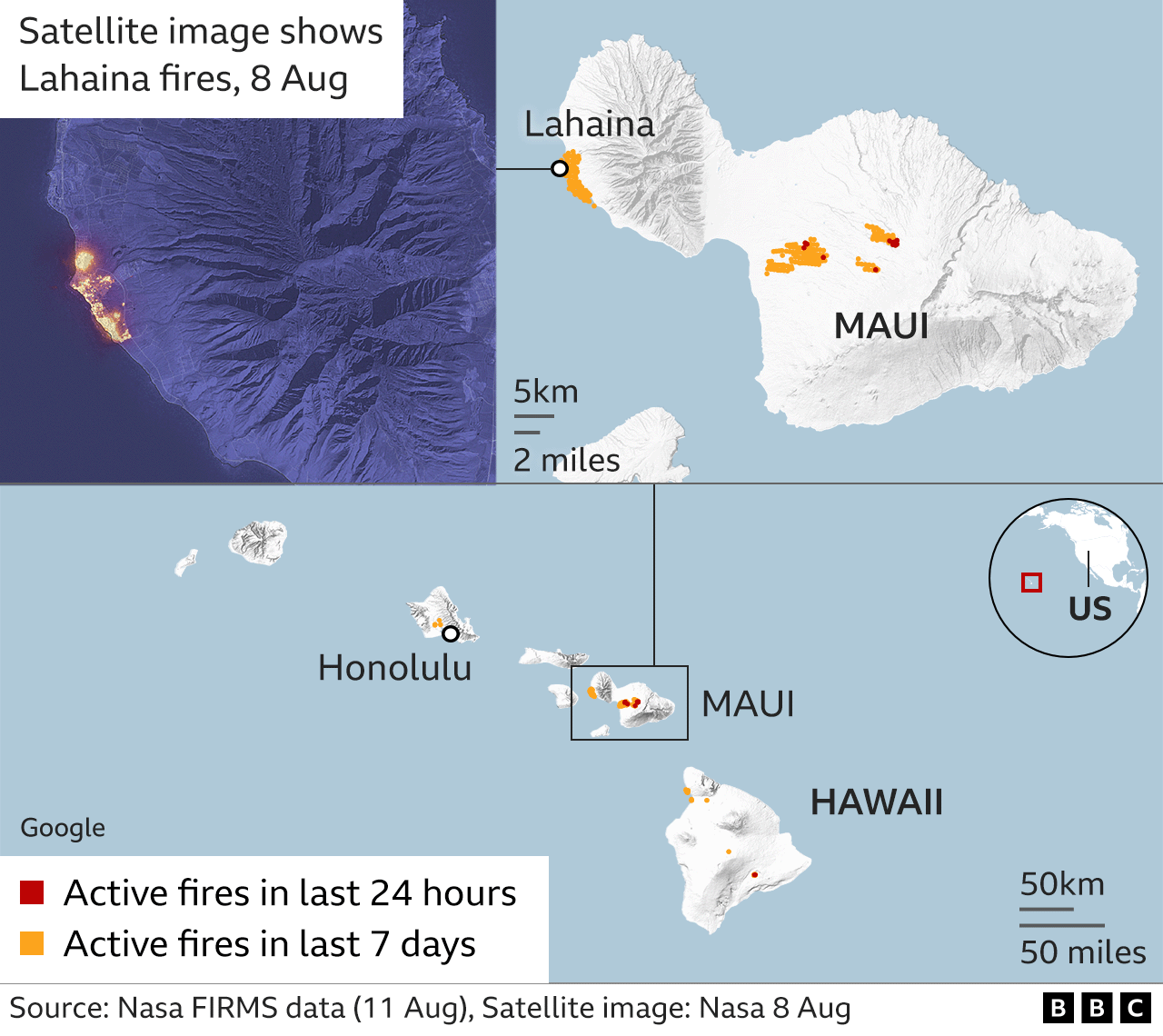
- Published16 August 2023
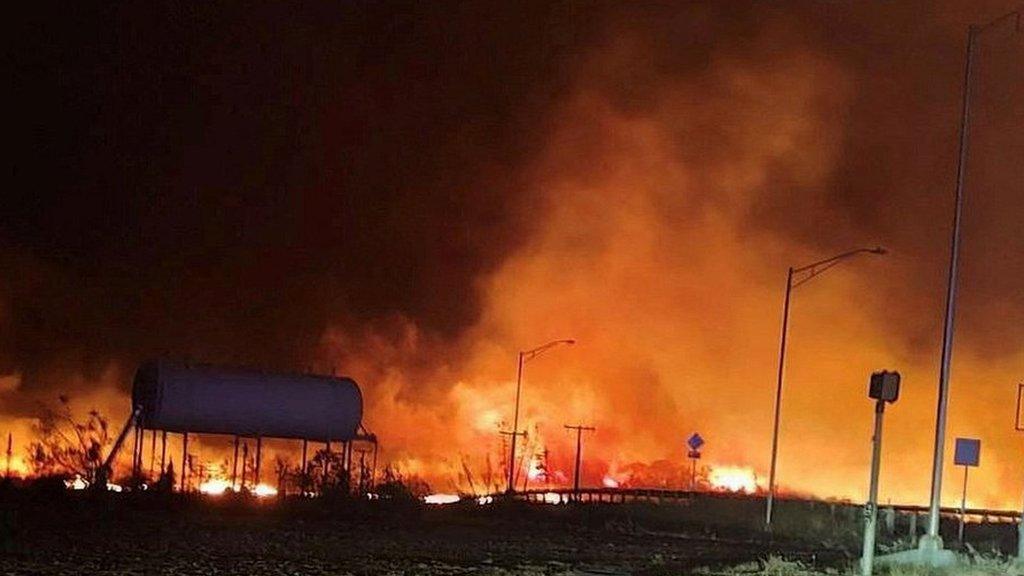
- Published14 August 2023
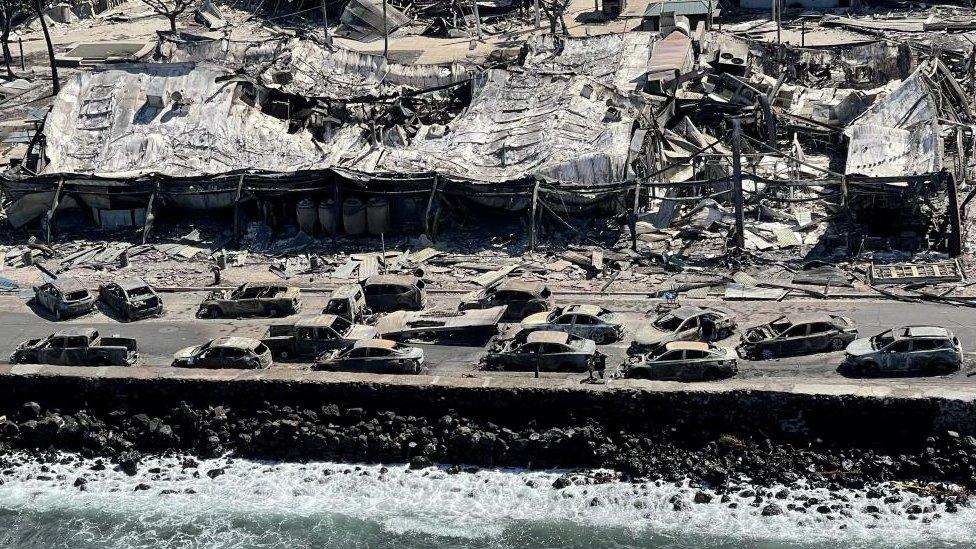
- Published13 August 2023
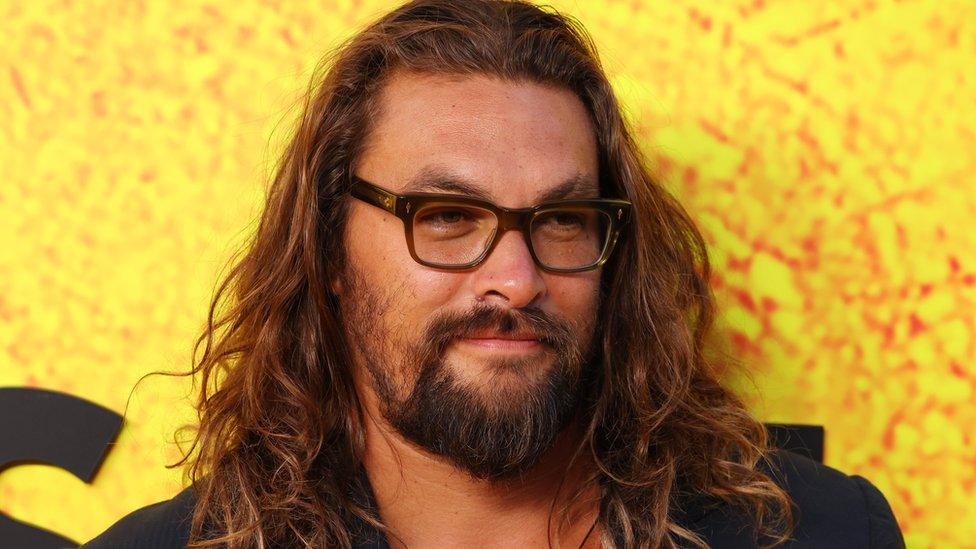
- Published12 August 2023
